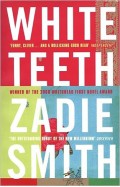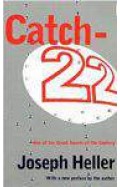Aftershock - How Past Events Shake Up Your Life Today
By: Geri-Lynn Utter
-
Rs 3,595.00
Due to constant currency fluctuation, prices are subject to change with or without notice.
You may be at a point in your life where you realise that you have been edgy, a bit depressed, feeling unsettled. Yet everything in your life seems to be okay. You look for a cause, but you just can’t put your finger on it. Perhaps you should examine your recent past—six months ago, a year ago—and ask yourself, "What did I go through that was stressful at the time, yet I was able to deal with by suppressing my stress until that situation was over?"
“Aftershock” is a term coined by clinical psychologist Dr. Geri-Lynn Utter, who came to recognise this largely ignored scenario in many of her patients. As a subclinical level of the more familiar post-traumatic stress disorder, “aftershock” may underlie your present emotional stress, a delayed emotional response that affects many of us after common, yet big deal, life events such as miscarriage, moving to a new city, divorce, or, for some people, the Covid-19 pandemic that has rocked much of the world.
The most urgent raison d’etre of Aftershock is to enlighten readers to the very presence of this psychological trauma—what it is and what causes it, how to recognise the symptoms, and how to heal when life's stressors keep you in the centre of the aftershock of a storm.
You may be at a point in your life where you realise that you have been edgy, a bit depressed, feeling unsettled. Yet everything in your life seems to be okay. You look for a cause, but you just can’t put your finger on it. Perhaps you should examine your recent past—six months ago, a year ago—and ask yourself, "What did I go through that was stressful at the time, yet I was able to deal with by suppressing my stress until that situation was over?"
“Aftershock” is a term coined by clinical psychologist Dr. Geri-Lynn Utter, who came to recognise this largely ignored scenario in many of her patients. As a subclinical level of the more familiar post-traumatic stress disorder, “aftershock” may underlie your present emotional stress, a delayed emotional response that affects many of us after common, yet big deal, life events such as miscarriage, moving to a new city, divorce, or, for some people, the Covid-19 pandemic that has rocked much of the world.
The most urgent raison d’etre of Aftershock is to enlighten readers to the very presence of this psychological trauma—what it is and what causes it, how to recognise the symptoms, and how to heal when life's stressors keep you in the centre of the aftershock of a storm.
Aftershock - How Past Events Shake Up Your Life Today
By: Geri-Lynn Utter
Rs 3,595.00 Ex Tax :Rs 3,595.00
Zubin Mehta: A Musical Journey (An Authorized Biography)
By: VOID - Bakhtiar K. Dadabhoy
Rs 840.00 Rs 1,050.00 Ex Tax :Rs 840.00
No similar books from this author available at the moment.
No recently viewed books available at the moment.
Zubin Mehta: A Musical Journey (An Authorized Biography)
By: VOID - Bakhtiar K. Dadabhoy
Rs 840.00 Rs 1,050.00 Ex Tax :Rs 840.00
Aftershock - How Past Events Shake Up Your Life Today
By: Geri-Lynn Utter
Rs 3,595.00 Ex Tax :Rs 3,595.00














-120x187.jpg?q6)













